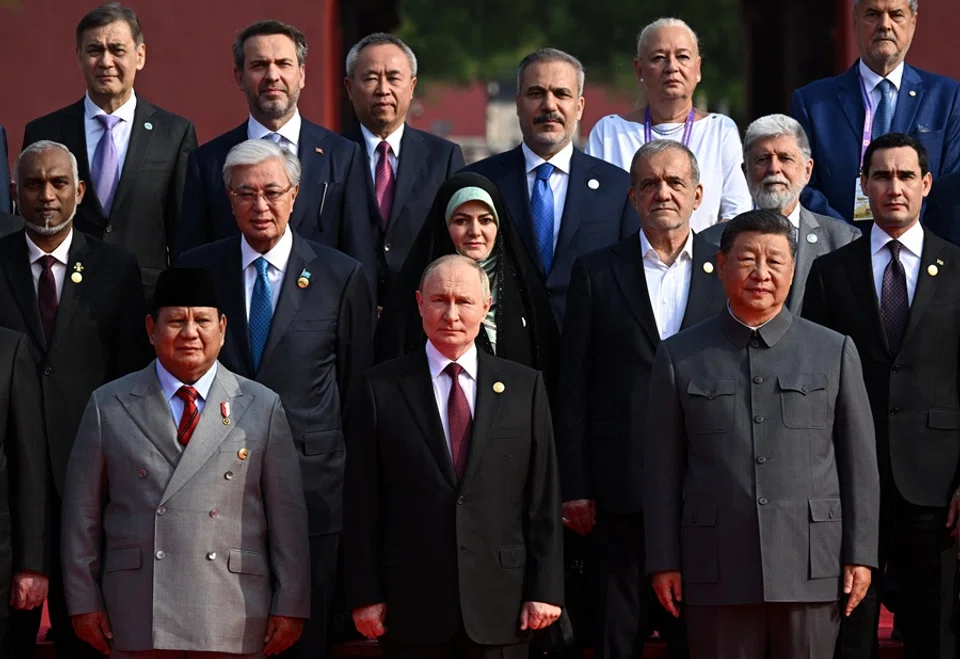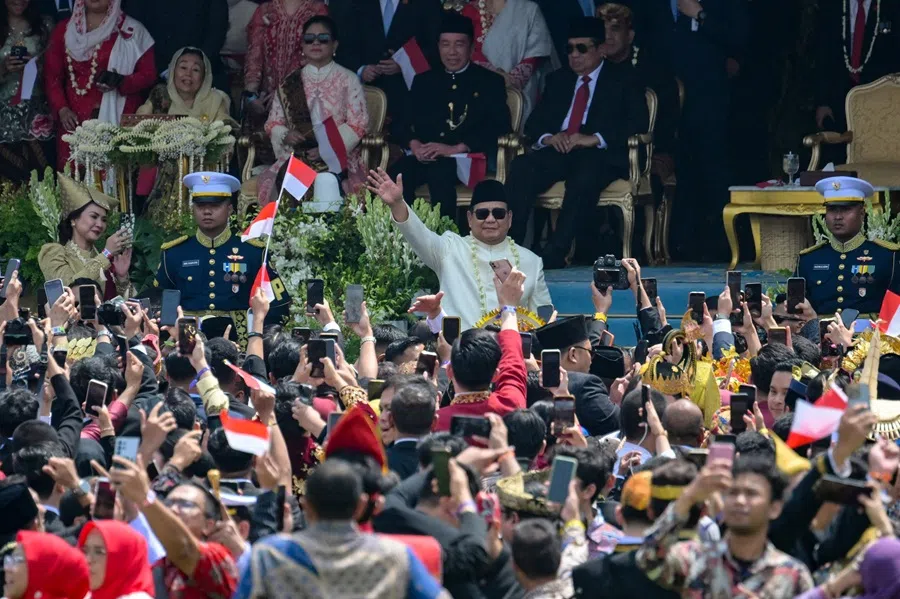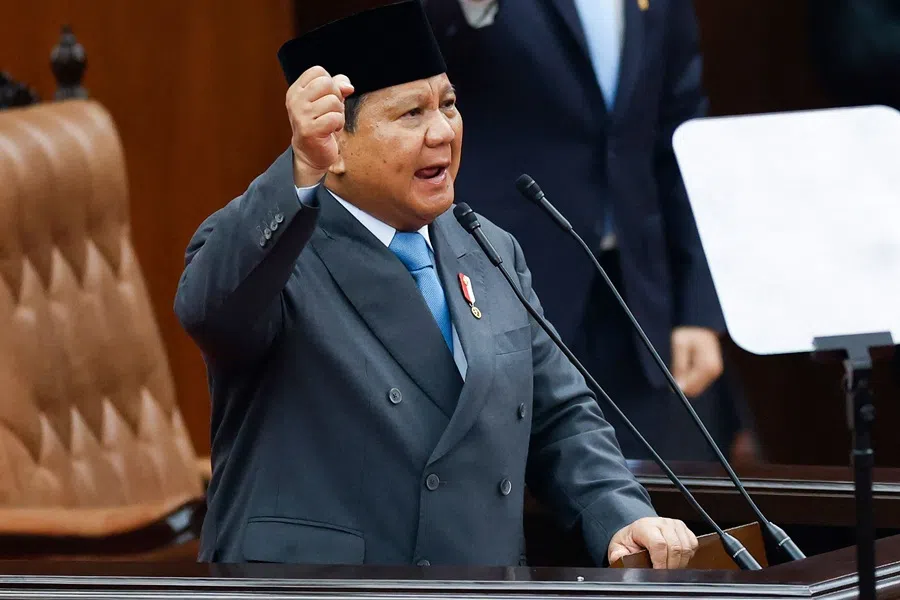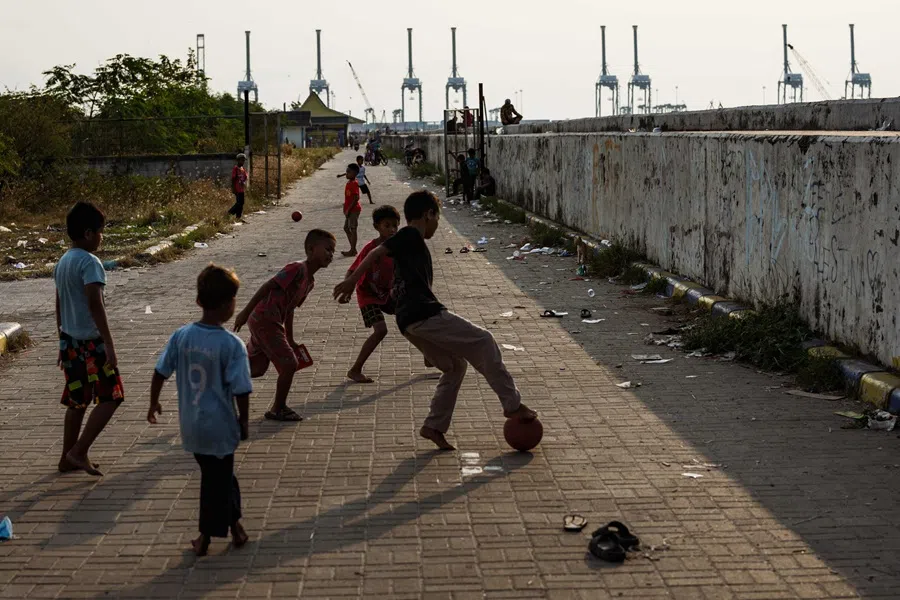Prabowo, Xi and Putin: Indonesia’s quiet pivot towards a China-led future?
Prabowo’s leadership style and strategic worldview appear to align more naturally with leaders such as China’s Xi Jinping and Russia’s Vladimir Putin than with Washington’s establishment. For China, this presents both an opportunity and a challenge, says researcher Ronny P Sasmita.

Indonesia’s new president, Prabowo Subianto, is poised to reshape Southeast Asia’s balance of power. While many analysts once assumed Jakarta would continue its traditional policy of non-alignment, the reality unfolding is more complex.
Prabowo’s leadership style and strategic worldview appear to align more naturally with leaders such as China’s Xi Jinping and Russia’s Vladimir Putin than with Washington’s establishment. For China, this presents both an opportunity and a challenge — the chance to consolidate influence in Southeast Asia and strengthen its global posture in the long-term competition with the US.
Prabowo’s political persona is defined by discipline, hierarchy and an assertive approach to state power. As a former general, he prizes order and stability, traits that echo China’s governance philosophy under Xi Jinping. While Indonesia remains a democracy, Prabowo has never concealed his scepticism toward Western-style liberalism, which he often sees as chaotic and ill-suited to Indonesia’s needs.
Prabowo fits into strongman revival
In this sense, Prabowo fits into a broader global trend, the rise of strongman leaders who prioritise sovereignty, security and strategic autonomy over Western ideals of pluralism and open markets. His admiration for leaders like Putin and Xi suggests he views centralised authority as essential to national development and geopolitical resilience. For China, this is an important alignment of values. Unlike some of Indonesia’s past leaders who leaned toward Washington, Prabowo’s instincts position him closer to Beijing’s ideological orbit.
Indonesia is Southeast Asia’s largest economy and a key player in the Global South. Prabowo’s administration has signalled a pragmatic approach to economic cooperation, and China already enjoys a dominant role in Indonesia’s infrastructure development. Flagship projects under the Belt and Road Initiative (BRI), from high-speed rail to industrial parks, are not only symbols of connectivity but also of Beijing’s ability to embed itself in Indonesia’s growth story.
Washington has long hoped to cultivate Jakarta as a strategic partner to counter China. But Prabowo’s orientation weakens this ambition.

Prabowo is unlikely to reverse these partnerships. On the contrary, he is expected to deepen them. His focus on food security, defence modernisation and industrial upgrading aligns well with China’s ability to provide investment, technology and expertise. Unlike Western investors, Beijing offers infrastructure financing without attaching political conditions, a policy stance that resonates with Prabowo’s nationalist priorities. China thus gains not only an economic foothold but also a political partner who sees cooperation as a pathway to independence from Western economic dictates.
Military complementarities
Another dimension of Prabowo’s orientation is his enthusiasm for strengthening Indonesia’s military capabilities. Here, Russia and China stand out as reliable partners. Indonesia has a long history of procuring defence equipment from Moscow, and under Prabowo, this trajectory is likely to continue despite US sanctions pressure.
China, too, is expanding defence ties with Indonesia. Joint naval exercises, counterterrorism training and technological exchanges are all on the rise. Prabowo’s willingness to engage with both Beijing and Moscow, even at the risk of displeasing Washington, signals a bold assertion of autonomy.
For China, this means more than just selling arms. It represents an opportunity to embed itself in the security architecture of the Indo-Pacific. By nurturing ties with Indonesia, Beijing complicates America’s effort to consolidate alliances through initiatives like AUKUS and the Quad.
China understands that Indonesia is not just another Southeast Asian state. With a population of nearly 280 million and control over key maritime chokepoints, Indonesia is central to the balance of power in the Indo-Pacific. Washington has long hoped to cultivate Jakarta as a strategic partner to counter China. But Prabowo’s orientation weakens this ambition.
This creates space for China to step in as a trusted development partner, a military collaborator and even a diplomatic ally on global issues.
US regional containment strategy hits a snag
If Indonesia tilts closer to Beijing, even subtly, the US faces a major setback in its regional containment strategy. Unlike smaller ASEAN states, Indonesia has the size and confidence to pursue an independent foreign policy. Under Prabowo, independence translates into a selective embrace of non-Western partners. This creates space for China to step in as a trusted development partner, a military collaborator and even a diplomatic ally on global issues.

One of Prabowo’s recurring themes is the importance of sovereignty. He frequently warns against foreign interference in domestic affairs and stresses Indonesia’s right to pursue its own path. This discourse mirrors Xi Jinping’s advocacy for a multipolar world, where no single superpower dictates the rules.
In this ideological alignment, China sees a valuable partner. Together with Russia, Indonesia under Prabowo could become a voice for the Global South that resists Western pressure. Whether on issues like climate change, digital governance, or trade rules, Beijing benefits from having Jakarta in its corner.
Furthermore, Prabowo’s scepticism toward Western interventionism dovetails with China’s campaign to delegitimise US military presence in Asia. As Washington struggles to maintain credibility, Prabowo’s independent streak may reinforce China’s narrative of a declining West.
Jakarta will never simply bow to Beijing’s agenda.
Still, it would be naive to assume Indonesia under Prabowo will become a junior partner to China. Nationalism remains a core principle of his politics. Jakarta will never simply bow to Beijing’s agenda. In fact, Prabowo may occasionally clash with China on issues like the South China Sea or domestic economic interests.
But China has experience managing such tensions. With patient diplomacy and continued investment, Beijing can ensure that even if Indonesia asserts its independence, it does so in ways that do not fundamentally threaten Chinese interests. The real challenge for Beijing is to prevent Jakarta from drifting back toward Washington. This will require a careful balance of respect and partnership, emphasising mutual benefit rather than domination.
China gaining legitimacy, pushing back containment
From a geopolitical standpoint, Prabowo’s orientation is a net gain for Beijing. Every degree of distance between Jakarta and Washington reduces the effectiveness of US containment strategies. At the same time, every gesture of goodwill between Jakarta and Beijing strengthens China’s legitimacy as a partner for the developing world.
It signals to the world that US influence is no longer automatic, even in regions it once considered within its sphere.

This does not mean Indonesia will join a formal bloc with China and Russia. But the symbolism of Prabowo appearing closer to Xi and Putin than to American leaders is powerful. It signals to the world that US influence is no longer automatic, even in regions it once considered within its sphere. For China, this enhances the perception that its model of development and governance is increasingly attractive in the Global South.
Prabowo Subianto’s rise to Indonesia’s presidency represents more than a domestic political transition. It is part of a broader shift in global geopolitics, where emerging powers seek partners beyond Washington’s reach. His natural affinity with Xi Jinping and Vladimir Putin underscores the potential for Indonesia to align, though not fully integrate, into a China-centred multipolar order. For Beijing, this is a strategic gift. It provides both a buffer against US containment and an ally in shaping the narratives of the Global South.
The task for China is to seize this moment. By respecting Indonesia’s sovereignty, deepening economic ties and offering security cooperation, Beijing can anchor Jakarta as a partner for the decades ahead. As the US struggles to adapt to a rapidly changing world, Prabowo’s Indonesia may well emerge as a case study in how China’s patient engagement can tilt the balance of power in Asia’s favour.





